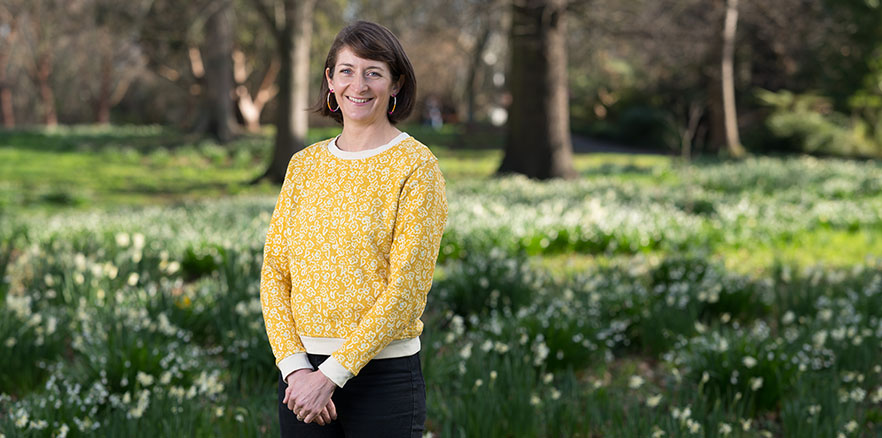
Dr Katie Douglas
Dr Katie Douglas foresees a day when people will visit a mental health service, undergo an assessment and walk away with a course of psychological therapy tailored to their own profile of challenges and strengths.
“Psychological therapy is a cutting-edge area of research with so much potential. Depression and bipolar disorder are now recognised as ongoing, relapsing disorders, not just episodic ones,” says Douglas.
“Depression is so variable. Some people can go to the GP, get anti-depressants and get better. However, most people will need a more in-depth understanding of the causes of their low mood to be able to recover. If we can break depression down into its multiple parts, we can start targeting these parts in a more personalised way.”
With depression the leading cause of disability worldwide and bipolar disorder ranked fourth on the World Health Organization's Global Burden of Disease Index, new breakthroughs in mental health treatment are vital.
Douglas, a Senior Research Fellow and registered Clinical Psychologist at the University of Otago, Christchurch's Department of Psychological Medicine, has been awarded seven major research grants as Principal Investigator, including, in 2018, the prestigious Sir Charles Hercus Fellowship from the Health Research Council of New Zealand (HRC). She is currently leading three internationally-renowned research projects.
Two are clinical trials relating to mood disorders. The first, the Enhancing Recovery Trial, combines individual psychological intervention with a group brain training programme over 12 months; the second is a bipolar disorder feasibility trial using a novel combination of bright light therapy and social rhythm therapy to improve mood by helping to stabilise circadian rhythms.
“Our interventions are focused on long-term recovery and depression prevention. The therapies we're developing can potentially be delivered by a range of mental health professionals. Some can also be carried out at home or online. A computerised intervention, instead of face-to-face therapy, may be a better, more convenient fit for many people.”
Douglas says participant feedback has been encouraging.
“It's extremely satisfying and heartwarming to see their progress. They can come into our studies in a very bad way, so to be able to see people engage in therapy, adopt strategies which work for them, then return to a fulfilling level of functioning is very satisfying."
“It's extremely satisfying and heartwarming to see their progress. They can come into our studies in a very bad way, so to be able to see people engage in therapy, adopt strategies which work for them, then return to a fulfilling level of functioning is very satisfying."
“Although not a cure, most participants find at least some of the strategies we're providing in our trials resonate with them and help them recover.”
Douglas says a shortage of trained clinical psychologists is a huge problem, but studies aimed at trialling therapies that a range of other health professionals could potentially deliver may be one solution.
The Christchurch-raised mother-of-three is also Principal Investigator on the UNITE trial (Understanding Neurocognitive Impairment following Trauma Exposure), funded by the Canterbury Medical Research Foundation, examining the long-term impact of the Canterbury earthquakes. A recent paper from that study has found that self-identified resilient people affected by “quake brain” two to three years after the quake events were able to shed those cognitive effects eight years later.
Douglas is also the current Chair of the Australasian Society of Bipolar and Depressive Disorders, and says she and her team have cemented strong partnerships with many international research groups.
“We want to get to the point where we know which type of treatment works best for which type of person, and this will require very large samples of patients involving international research collaborations. The ultimate aim is to see the promising findings from our trials replicated in larger numbers, then adopted into everyday clinical practice.”
Recent awards
- Sir Charles Hercus Health Research Fellowship (2018)
- New Zealand College of Clinical Psychologists
- President's Award (2012)
Funding
- Health Research Council of New Zealand
- Canterbury Medical Research Foundation
- University of Otago Research Grant
More stories about early career researchers
This story is part of the research publication 'He Kitenga 2022: Talented Futures', which presents the different pathways into research that early career researchers follow.